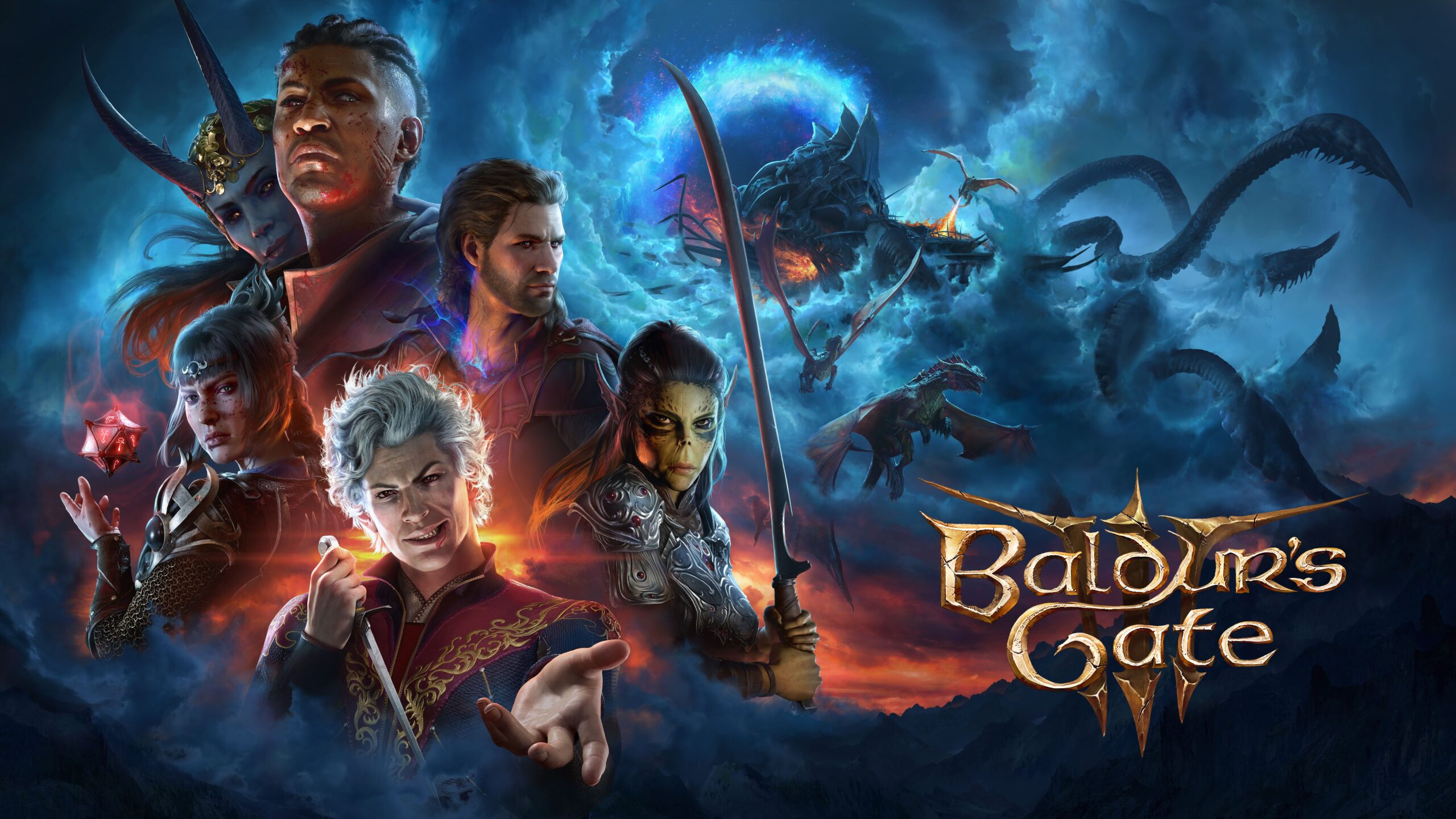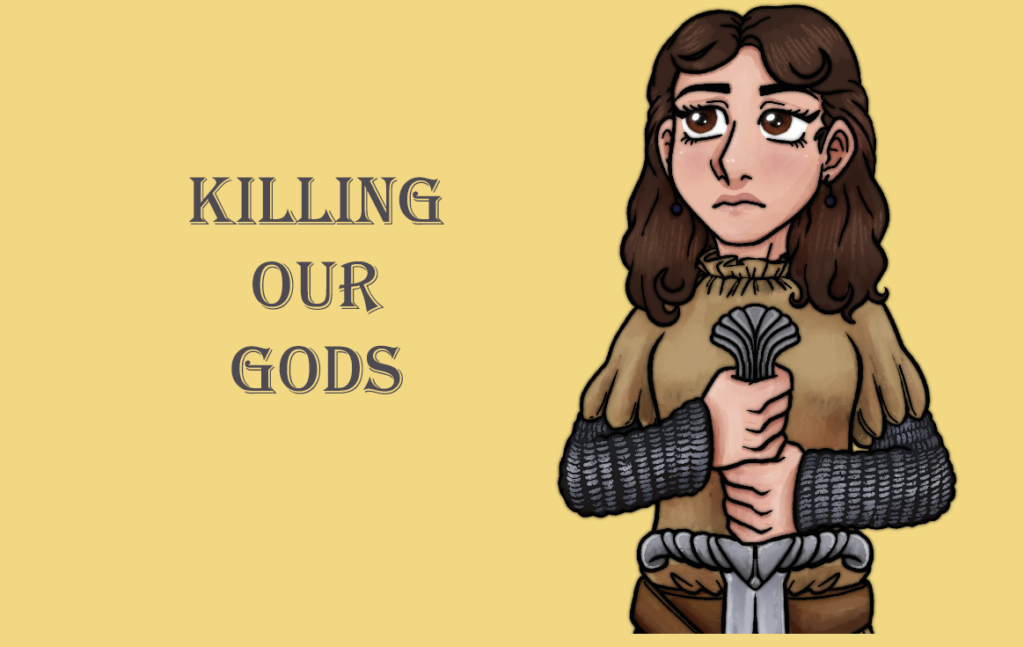
The World is Ending and So Will We: Revolution, Faith, and Despair in Disco Elysium
Killing Our Gods is a monthly column from Grace Benfell about Christianity, religion, and role-playing through a queer, Marxist, and lapsed Mormon lens.
In their most famous words, Marx and Engels call upon a spirit: “the specter of communism.” This specter is not something dead, but a holy ghost. One that will sweep up the working people of the world like it did the apostles on the day of Pentecost. A spirit that will speak in other tongues, cleanse with fire and blood, inspire slaves and laborers to prophesy and bring those words to bear with the strength of their hands. Of course, Engels would describe Marx’s theory as scientific. It is based on the real conditions of the working class, on the contradictions of capitalism itself, and where those realities will lead, given time and the proper pressure. But there is something of the Christian apocalyptic about it. Something seemingly dead made alive. A point where all of history converges, after which, the unimaginable and incomprehensible happens. Christ’s second coming would bring the equality of a new world. So would the revolution.
In Disco Elysium, that spirit is dead. Decades before the game begins, these islands underwent revolution. The liberal democratic nations of the world united to destroy them. Revachol, the town in which all of Disco Elysium takes place, was the incision point for communism’s downfall. Bullet holes, craters, and decay spot the city streets like cuts and bruises on a corpse. Revachol is haunted, because it is communism’s grave. Furthermore, the real world is all in patches between “the Pale,” a ghostly sea of static, fragmented memories. Traveling through it is essential to international trade, but it ravages the minds of those who do. More terrifying still, it is spreading. Someday the world might all be empty noise.
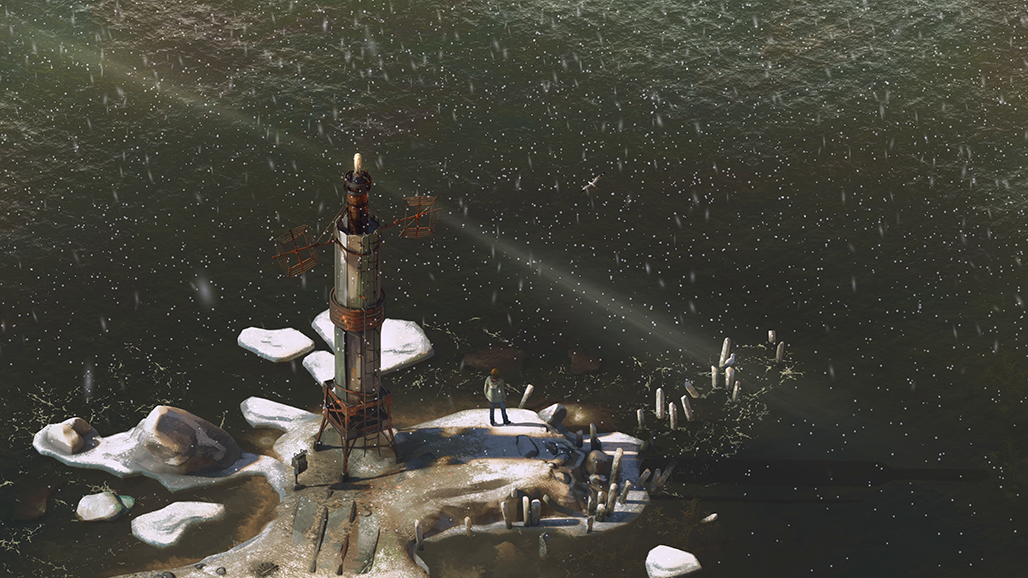
Wandering through this blooming, dying world is a different kind of spirit, a vengeful one: Harry Du Bois, the world’s shittiest, most forgetful cop. He has woken up, mind empty, only to find a hanging man whose murder he must solve. To do so, he, or at least my version of him, had to attune himself to the ghosts of Revachol. He had to feel the “shivers” of the city in his bones or face the “inland empire” of the surrounding world.
Despite all these wreckages of history, Marx’s influence on the game is actually pretty minimal. I will grant that this is the only RPG I know of with abilities that make your character communist. However, what remains of communism are abandoned bunkers, graffiti, scribbles in notebooks, and old ruins. The local union, nominally left, uses racists as its muscle and is structured closer to a mafia than something meant to give power to workers. Though Harry can be a communist, that rarely means anything more than shouting slogans. You are, after all, a policeman. Communism is a ghost, no holy spirit.
Rather, the game is about living in a place where a better world is, in all likelihood, not possible. A climate crisis, far more fundamental to human life than global warming, expands across the world. Communism was shot in the head. The unions are corrupt. The heart of churches, all abandoned and decayed, were formed around the seeds of the Pale. Seeds that will one day grow beyond the wooden walls that hold them. The better world was killed in its cradle.
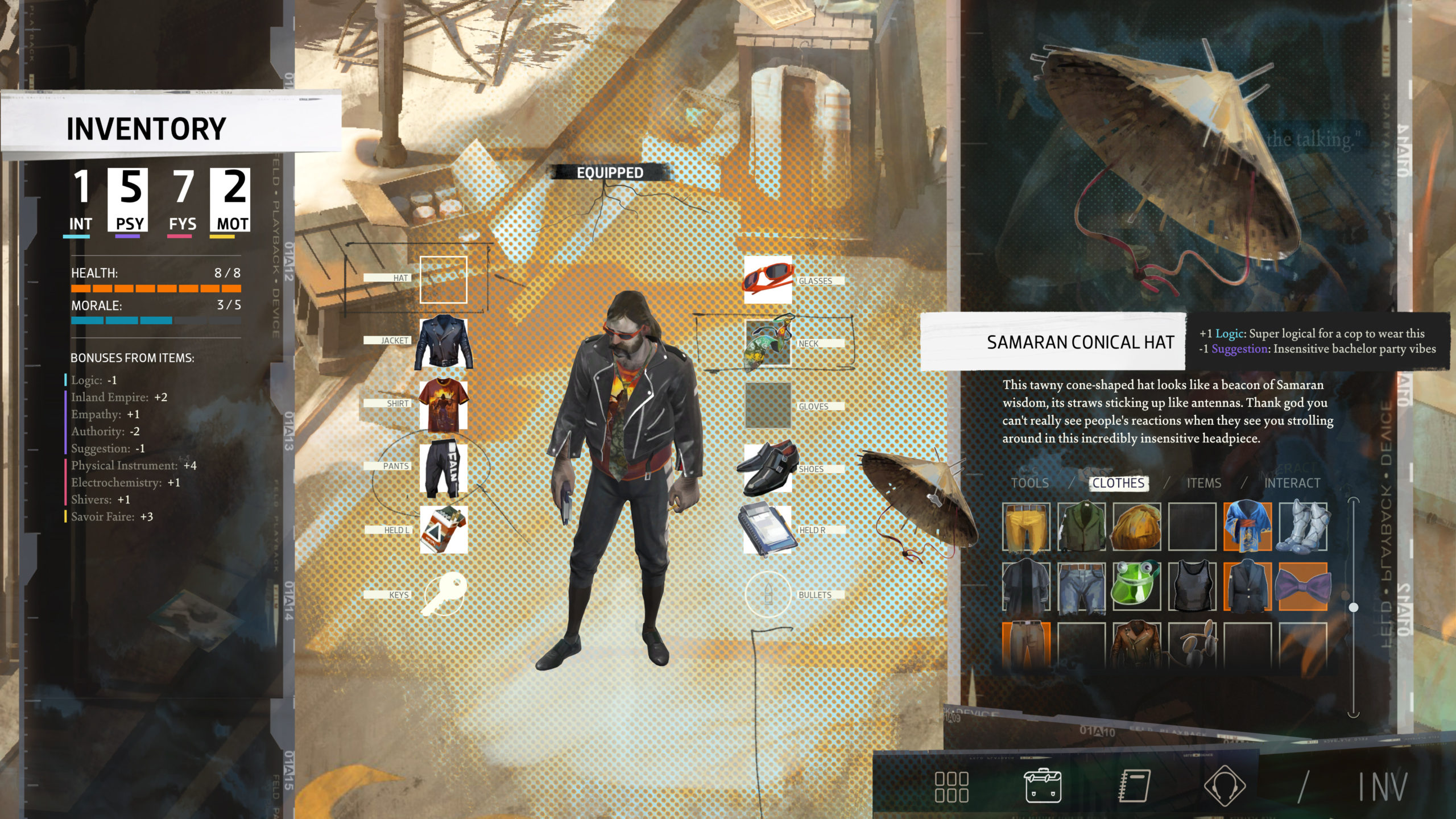
What Disco Elysium offers instead is a quiet, existentialist hope in the face of annihilation. As well as a belief in people’s ability to change. No matter how you play him, Harry Du Bois is a marvelous shithead. The lingering thoughts of your ex-wife imply past, and allow present misogyny. The disrepair of your life, including wrecked cars, destroyed relationships, shattered windows, is scattered all over the city. The game gives you innumerable opportunities to be horrible and cruel to others, especially to your ever patient partner Kim. I say none of this as a knock against the game. Rather, it is true that being kind and empathetic can be very, very hard. Especially in a world that encourages simple cruelty and when, of course, you have been an unrepentant jackass for so long. Every dialogue option or choice emphasizes that, while for you the right thing might be a mouse click, for Harry, it is not so simple.
By emphasizing that effort, especially in the face of the existential powers of the Pale and your addicted bloodstream, Disco Elysium gives voice to a quiet human hope. By the end, Harry can be at least somewhat put together, restoring what he can, and making restitution for what he cannot. It is, thankfully, not a clean redemption. There are people who Harry has hurt, who he can never reconcile with. The world remains the world. Your past remains your past. There is still good to be done. In Revachol, it is always small: you can help cryptozoologists with their research, help a little girl find shelter, and give answers to a worried family. If we cannot rage against the dying of the light, we can at least mourn it, with dignity, together.
I understand and empathize with this kind of despair and this kind of hope to counter it. Especially since I often feel powerless, fractured, broken. The evil of the world can feel so immense. Everyday I become more aware of how that evil structures my thoughts and behaviors. I find solace in fiction that stares into bleakness and finds reasons to continue on.
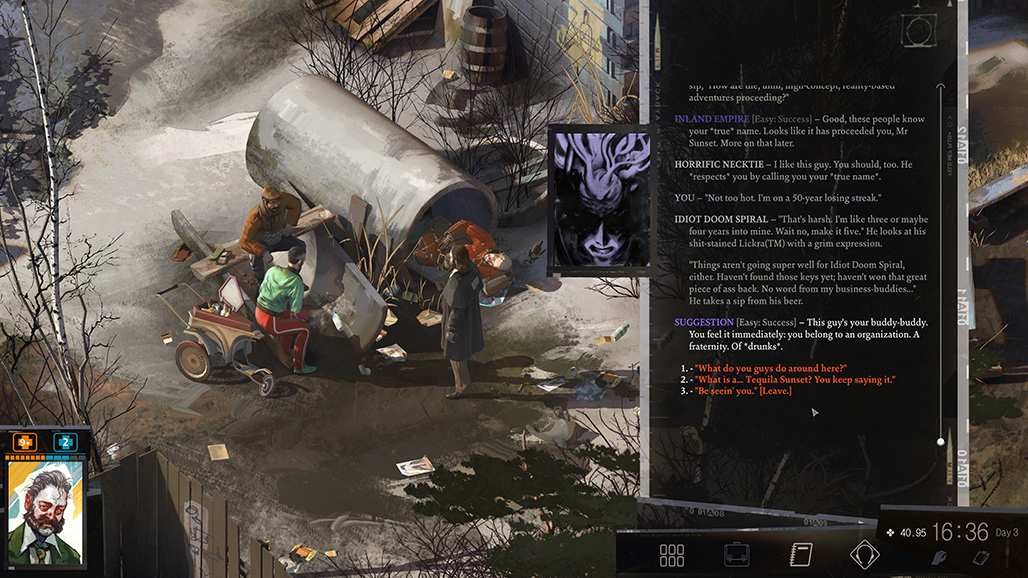
However, I want to emphasize, one cannot live like this always. When the material conditions of the world feed into cruelty, when thousands die because of the carelessness of those in power, when we still must say and affirm that black lives matter, those conditions force us into action, into the streets. The urgency of the moment pushes beyond individual existence and into a collective force of will. Mourning can be turned into righteous rage. These massive social movements are coming. The only questions are how we will steer them and whether we will win.
Since Marx and Engels wrote their manifesto, and longer still since Christ promised he would return, we have been living in the shadow of that potential world. Every Christian sect or cult from its beginning has believed Christ’s return to be imminent. The point of organizing, whether in protests, mutual aid, in unions, or anything else is not only to make the world immediately better, but to prepare for the revolution. I would go as far to say, that in order to make even incremental change happen, we have to believe that radical, earth-shattering change is possible.
There are, of course, problems that a better world would not fix. Death, injury, sickness, Disco Elysium’s existential questions of selfhood and purpose, will all remain. The promise of communism and even Christ’s return is not that all will be solved, but that we will have the time to heal. In Disco, Harry finds that healing in the margins, in small choices, but I do believe that this can be our lives. Revolution can restructure the world, rebuild and give back the land, and give us time to change. Even if Marx’s specter is just a ghost, even if Jesus’ bones lie in the cold, dark earth, we can still be pushed to believe, to act in faith. I believe that the world is not only haunted, but blessed. I believe that holy ghosts will crown us with power to do what must be done.





